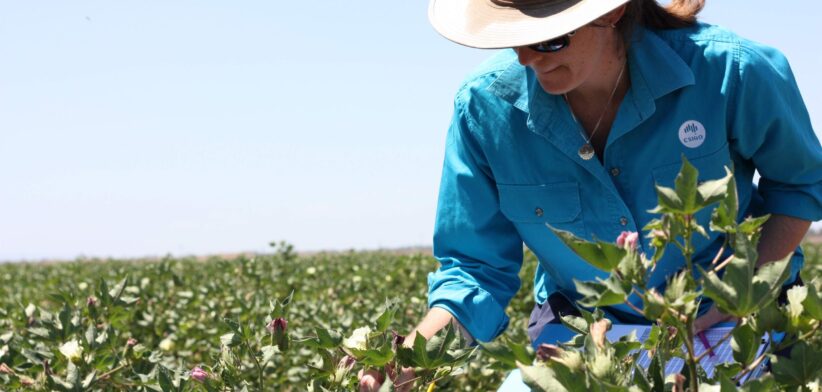Australian and global food security is under threat due to a lack of specialised scientists, according to the CSIRO.
Research produced by the CSIRO, in collaboration with universities in New Zealand and Canada, found a lack of scientists specialised in plant breeding could lead to “dire” food security implications around the world.
Lead author CSIRO scientist Lucy Egan said plant breeding was a multidisciplinary science that underpinned the global production of food, animal feed, fuel and fibre.
Dr Egan said a joint paper was produced with Lincoln University in New Zealand and McGill University in Canada to help highlight the issue.
“The paper found that to maintain our level of agrifood, fibre and feed production, we need to urgently address the skills shortage,” she said.
Dr Egan said the shortage had been building for some time and had the potential to impact agricultural production worldwide.
“What we’re seeing is a whole generation of highly-skilled plant breeding specialists who are now reaching retirement age, with a gap left as university graduates opt to focus on other areas of plant science including molecular biology,” she said.
“The implications of this shortage could be dire, including affecting global food security and the economies of different countries around the world, including Australia.”
Lincoln University’s Rainer Hofmann said the situation was much the same across the Tasman.
“Agricultural production plays such a key role for our country, and so it’s really important we start looking at strategies to slow this skills shortage,” Dr Hofmann said.
“Our research looked at the current state of plant breeding across tertiary, government and industry sectors and found that decreasing skills in plant breeding will have flow-on effects for a wide range of agrifood and fibre sectors.”
The report has highlighted a number of responses to the skills shortage, including the need for a coordinated approach between the public and private sectors.
McGill University’s Valerio Hoyos-Villegas said one of the keys to addressing the shortage would be the establishment of dedicated training facilities in different countries.
“We also need more focus on graduate programs in plant breeding, and increased private sector involvement if we are to keep pace with emerging scientific and technological advances in the sector,” Dr Hoyos-Villega said.
“Due to the long-term nature and the variety of agricultural industries plant breeding serves, it is important that funding and research become a matter of priority, with modernised plant breeding education top of mind.”
Read the full paper, which was published in Crop Science.








